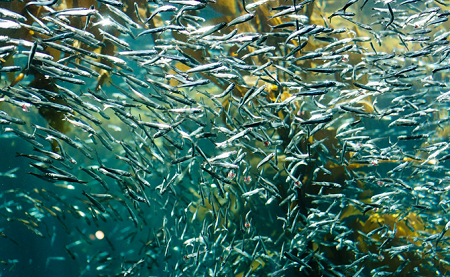European cooperation and SCAR
How national policy-making benefits from European cooperation in SCAR

A rather unique setting where relevant topics, even those that may be considered politically sensitive, can be discussed. An exchange of information and learning from the ‘neighbours’, that helps shape national policy as well. According to Rosanne Metaal, vice-chair of the Strategic Working Group on fisheries and aquaculture research (SCAR FISH), European policy makers can benefit a lot from participating in SCAR – supporting their work at the national level.
On changing roles in the Dutch Ministry of Agriculture, Nature and Food Quality in 2018, policy coordinator Rosanne Metaal also inherited the membership of the Standing Committee on Agricultural Research’s Strategic Working Groupon fisheries and aquaculture research (SCAR FISH). While still getting acquainted, she was also approached for vice-chairmanship.
A national perspective on water-based circular agriculture
At that time, the Dutch Ministry vision ‘Agriculture, Nature and Food: valuable and connected’ was prepared and Metaal noted the rather heavy focus on land-based agriculture and nature. Though not that surprising, as fisheries is a relatively small sector in the Netherlands, still the challenges that are connected to the blue environment are huge. In addition, water plays a key role in circular economy and circular agriculture. Especially in this country, land-based activities are strongly connected to the aquatic environment. This includes not just salt water fisheries, but also freshwater aquaculture. And, in the Dutch’ perspective’ circular agriculture could benefit a lot from a more optimal use of algae (a.o. as biofuel) and seaweed (a.o. as potential plant-based alternative for meat). From an animal health and welfare perspective it was also clear that the challenges that need to be addressed for land- and water-based environment are alike. In addition, in the new Dutch mission-oriented innovation policy, similar questions on the position of water-based challenges were raised. For Metaal, it was clear that water-based functions needed more attention.
European cooperation
‘When starting in SCAR FISH, it took some time to connect the activities in the group with the national policy developments. Being busy with preparing the Ministries’ vision as well as the mission-oriented innovation policy, framed the work in SCAR FISH nicely’. Metaal describes the Working Group as a setting where useful links, connections and information can be shared rather openly. Because of its unique position, SCAR and the Working Groups offer a platform where also politically sensitive issues can be brought to the table. Countries learn a lot from each other: ‘I wanted to become active in these platforms (SCAR and JPI Oceans; red.), because I believe we can bring in, our Dutch experiences, and take home with us a lot information from other countries: their national priorities and ways of dealing with challenges and opportunities.’
According to Metaal, such exchanges are supportive in shaping the national policy and vision. Vice versa, SCAR FISH is currently preparing a non-paper on opportunities and challenges in the water-based environment. It also aims to address research priorities for Horizon Europe. How are we going to effectively cooperate to safeguard our aquatic ecosystems and their carrying capacity? Do we need more focus on the potential of aquaculture? What benefits to expect from seaweed and algae production? Questions that are as relevant for the Netherlands, as they are for other European countries, and that need to be asked and answered in dialogue and cooperation.
The Standing Committee on Agricultural Research (SCAR) is a longstanding and respected source of advice on European agricultural and wider bioeconomy research for both European Commission and Member States. The thematic Working Groups in SCAR consists of national policy makers, Commission representatives, and (invited) experts.
You can read more about the Standing Committee on Agricultural Research (SCAR) on this website, or visit the SCAR website.
Policy makers in the spotlight with joint programmes
Joint programming is about aligning research & research funding. At the policy level, this includes finding and assembling national priorities into a common research agenda, shared and supported by the national governments involved. In a series of interviews, Dutch policy-makers and funders, as well as researchers from Wageningen University and Research present their part in the joint programming process.
